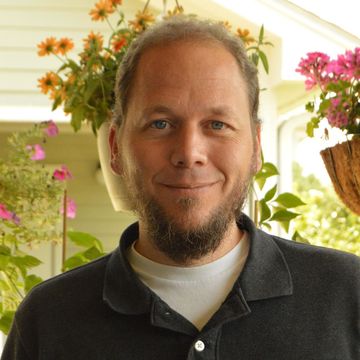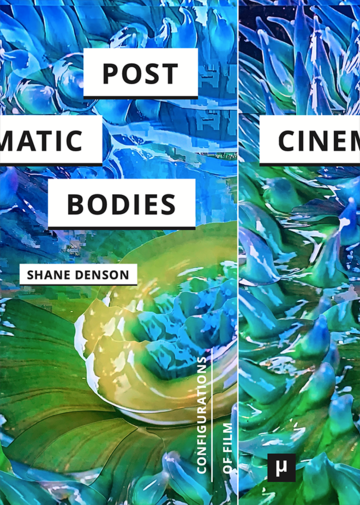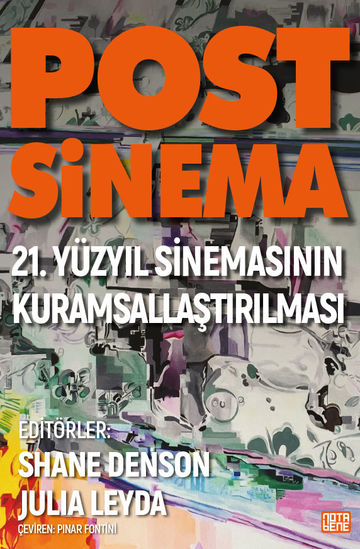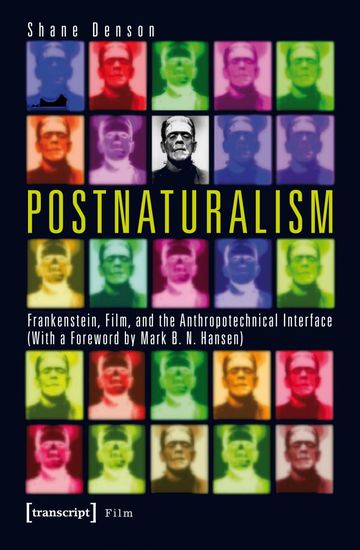Shane Denson

Shane Denson is Associate Professor of Film and Media Studies in the Department of Art & Art History and, by Courtesy, of German Studies in the Division of Literatures, Cultures, and Languages and of Communication in Stanford's Department of Communication. He is currently the Director of the PhD Program in Modern Thought and Literature, as well as Director of Graduate Studies in Art History.
His research and teaching interests span a variety of media and historical periods, including phenomenological and media-philosophical approaches to film, digital media, comics, games, and serialized popular forms. He is the author of Postnaturalism: Frankenstein, Film, and the Anthropotechnical Interface (Transcript-Verlag/Columbia University Press, 2014) and co-editor of several collections: Transnational Perspectives on Graphic Narratives (Bloomsbury, 2013), Digital Seriality (special issue of Eludamos: Journal for Computer Game Culture, 2014), and the open-access book Post-Cinema: Theorizing 21st-Century Film (REFRAME Books, 2016).
His book Discorrelated Images was published in 2020 by Duke University Press. Discorrelated Images explores the transitional spacetime between cinema and post-cinema. More precisely, it probes the transformational temporal and spatial articulations of contemporary moving images and our perceptual, actional, and affective interfaces with them as they migrate from conventional forms of cinema and enter the computational systems that now encompass every aspect of audiovisual mediation. While the generation, composition, distribution, and playback of images increasingly become a matter of algorithms, software, networks, and codecs, our sensory ratios (as McLuhan called them) are being reordered, our perceptual faculties are being reformed (or re-formed) in accordance with the new speeds and scales of imaging processes. In a post-cinematic media regime, that is, both the subjects and the objects of perception are radically transformed. Older relations—such as that between a human subject and a photographically fixed object—are dissolving, and new relations are being forged in the microtemporal intervals of algorithmic processing. With the new objects of computational images emerge new subjectivities, new affects, and uncertain potentials for perception and action.
His latest book, Post-Cinematic Bodies, was published in June 2023 by meson press. The book asks: How is human embodiment transformed in an age of algorithms? How do post-cinematic media technologies such as AI, VR, and robotics target and re-shape our bodies? Post-Cinematic Bodies grapples with these questions by attending both to mundane devices—such as smartphones, networked exercise machines, and smart watches and other wearables equipped with heartrate sensors—as well as to new media artworks that rework such equipment to reveal to us the ways that our fleshly existences are increasingly up for grabs. Through an equally philosophical and interpretive analysis, the book aims to develop a new aesthetics of embodied experience that is attuned to a new age of predictive technology and metabolic capitalism.
Prof. Denson also serves as faculty coordinator for the Research Workshop "Digital Aesthetics: Critical Approaches to Computational Culture" at the Stanford Humanities Center. From IBM punch cards to digital census forms, from ASCII art to Oculus Rift, how do we think and feel on screens and online, on disk or in the cloud, at the keyboard or off-the-grid? How do digital objects and code blur boundaries between text, image, and performativeacts? How do they challenge our understanding of the distinctions between a medium and its content? This workshop hosts conversations about material culture studies, performance theory, technology history, and aesthetics to explore a partnership between engineering and the humanities by bringing technological objects into critical humanities research and introducing new vocabularies into discussions of the design and production of our digital future.
For more information about Prof. Denson's research and teaching, see shanedenson.com.
Selected Courses taught at Stanford:







